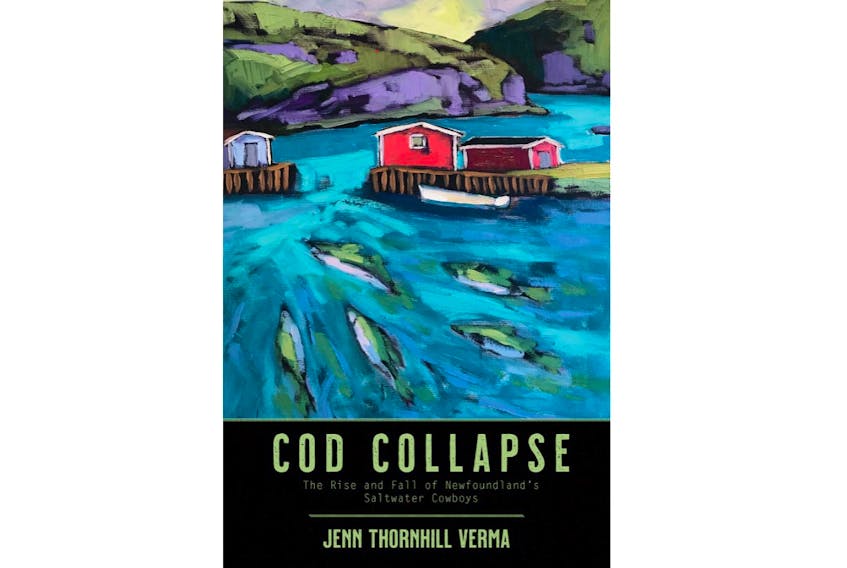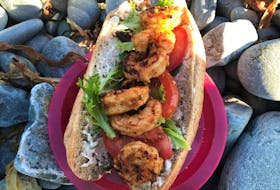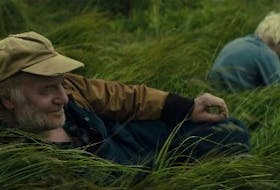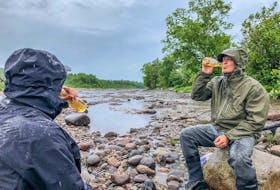On July 2, 1992, then-federal Fisheries Minister John Crosbie announced a moratorium on the cod fishery. Stocks were shockingly depleted, with various villains finger-pointed: voracious foreign fleets, mismanagement from Ottawa, too many fishers chasing too few fish. The moratorium was supposed to last for two years, and be lifted when the cod stocks rebounded. But it is still in place.

Why did it happen, how did it hurt the province, and what has developed across Newfoundland and Labrador since?
In exploring these questions, Jenn Thornhill Verma has sculpted a family memoir embedded in broader socio-cultural perspectives that range from a capsule history of 15th-century exploration to the practices of present-day fishers where women captain their own enterprises, juggling the requirements of licences and certificates from Fisheries and Oceans Canada, Transport Canada and Industry Canada.
She tours modern fish plants and talks with former fishers expanding into new tourism-related projects. She makes a poignant trek with a photographer who focuses on abandoned homes.
Verma travels from Grand Bank to Quirpon and packs a lot into the pages: an account of former Premier Danny Williams’ confrontation with Paul and Heather Mills McCartney; comparisons of Iceland and Newfoundland’s fisheries; letters her grandfather wrote; first-person narratives of accidents at sea.
The hefty material is organized into three parts, “Roots,” “Resurgence,” and “Revival.”
Her research is extensive, although she doesn’t include a bibliography but had amended Endnotes. There are lots of black and white photos and a slim colour album (many from Verma’s family archives), and some maps. (She’s also a painter and created the fetching cover image.)
In evaluating this massive environmental crash she’s also negotiating her own identity and connections to home. She herself studied in Nova Scotia and has lived and worked in Ontario for many years. Whether this is a sign of success or a degree of betrayal depends on which lens it is viewed through. There’s a pull to Newfoundland but a lot of perceived restrictions on what life should and could be here.
Verma’s grandfather fished out of Little Bay East, Fortune Bay. It was an independent, self-sustaining work, but perilous — he was shipwrecked five times.
“And yet, Pop (Reginald Thornhill) would continue a life at sea as a saltwater cowboy — this is not a term he would have used, but it fits, given he routinely escaped the dangers of shadowed icebergs, rogue waves, and other ocean calamities threatening to capsize much more than the day’s catch. Other fishers also don’t use the term and although the similarities abound —wrangling fish not cattle, riding waves not bucking horses, and wearing sou’westers not cowboy hats — fishers lack the cavalier attitude. That’s because fishers know they are no match for Mother Nature.”
I think she’s pushing the comparison a little bit here.
We’ve heard the term before but it doesn’t feel as if it generated organically from the Newfoundland cod fishery (I am ready to stand corrected). But then again Verma doesn’t pretend to a special connection with the fishery now — as a livelihood in her family that stopped with her father’s generation — and she assiduously strives to fill the gaps in her knowledge with government reports, CBC broadcasts, personally conducted interviews, you name it.
Some errors still creep in. For example, this is not accurate: “Recall that at the time of Confederation, Newfoundland was in a precarious position financially, causing the province to become immediately dependent on its new country for a bailout.”
Newfoundland actually entered Confederation in the black, although then-Premier Joseph Smallwood’s economic hijinks and canoodling soon put paid to that.
She also has her own take on the word “Newfie” (which, full disclosure, I have no time for) saying “it’s also Newfoundland-based musical-comedy bands like Buddy Wasisname and the Other Fellers and sketch-comedy troupes like CODCO who helped normalize and reclaim Newfie-style humour.”
Not that she’s overly sentimental about Newfoundland. Her tone is frank and open. For instance, we all love our Nans, but she also acknowledges her grandmother, Emily Thornhill, was rigid in disapproval of her daughter-in-law, Pauline’s, religion, to the point that she refused to attend the wedding.
Verma’s mother then avoided visiting her, and once when Verma, her older sister, Natalie, and her father, Don, dropped by unexpectedly, Emily was furious at the lack of warning and flicked a bag of peppermint knobs at them.
It’s these personal stories that knit together this weighty text and sometimes divergent tacks and opinions.
Joan Sullivan is editor of Newfoundland Quarterly magazine. She reviews both fiction and non-fiction for The Telegram.









